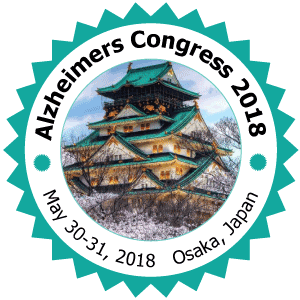Yung-Chih Kuo
National Chung Cheng University, Taiwan
Title: Rosmarinic acid and curcumin-loaded polyacrylamide-cardiolipin-poly(lactide-co-glycolide) nanoparticles with conjugated 83-14 monoclonal antibody to protect β-amyloid-insulted neurons
Biography
Biography: Yung-Chih Kuo
Abstract
Polymeric nanoparticles (NPs) combined with lipids can have profound effects on treatment efficacy in patients with neurological disorders such as Alzheimer’s Disease (AD). We developed polyacrylamide (PAAM)-cardiolipin (CL)-poly(lactide-co-glycolide) (PLGA) NPs grafted with surface 83-14 Monoclonal Antibody (MAb) to carry Rosmarinic Acid (RA) and Curcumin (CUR). This drug delivery system was used to cross the Blood-Brain Barrier (BBB) and enhance the viability of SK-N-MC cells insulted with β-Amyloid (Aβ) deposits. Experimental evidence revealed that an increase in the concentration of 83-14 MAb enhanced the permeability coefficient of RA and CUR using the nanocarriers. The levels of phosphorylated p38 and phosphorylated τ-protein at serine 202 in degenerated SK-N-MC cells were in the order: Aβ>(Aβ+RA-CUR)>(Aβ+83-14 MAb-RA-CUR-PAAM-PLGA NPs)>(Aβ+83-14 MAb-RA-CUR-PAAM-CL-PLGA NPs)≈control. The viability of SK-N-MC cells reduced with time and CL in 83-14 MAb-RA-CUR-PAAM-CL-PLGA NPs advantaged Aβ-targeted delivery of RA-CUR. These results evidenced that the current 83-14 MAb-RA-CUR-PAAM-CL-PLGA NPs can be a promising pharmacotherapy to permeate the BBB and reduce the fibrillar Aβ-induced neurotoxicity.

